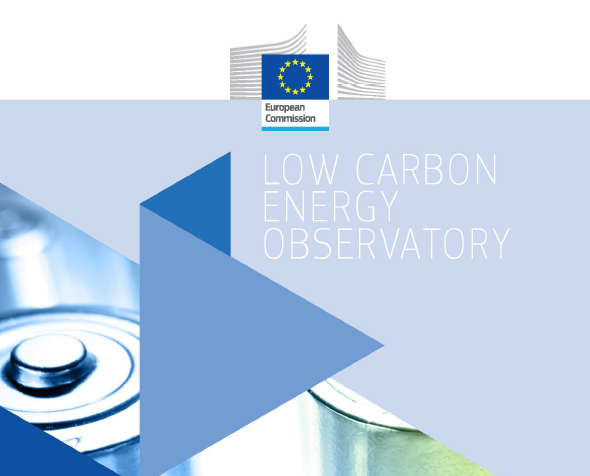Batteries - Technology Development Report
15/03/2021

With the announcement of the European Green Deal an intensified effort will be directed towards achieving a set of challenging targets to enable Europe to become the first climateneutral continent by 2050.
Measures to facilitate this transition will need to be taken in many economic sectors, including energy, transport, industry and built environment.
Battery energy storage is recognised as one of the key technologies for the transition to a decarbonised and clean energy system due to its broad application potential in the power sector and in transport. Share of electricity from renewable energy sources, such as e.g. wind and solar, is expected to further increase and their inherently intermittent nature necessitates deployment of energy storage solutions.
While still in its infancy, battery energy storage at the grid level is set to play a key part in the future of the renewable energy industry and the power sector, by enabling the storage of surplus energy that currently goes to waste and by providing reliable grid services (e.g. peaking capacity, frequency and voltage control, peak shaving, congestion management, black start). In behind-the-meter applications, batteries improve power quality and increase the reliance on self-generation. In integrated systems supported by smart market designs, batteries may contribute to decentralisation and the shift of consumers to prosumers, thereby empowering the participation of the EU citizens in the energy market as envisaged in « Clean Energy for all Europeans » legislative package.
Transport accounts for a quarter of the European Union’s greenhouse gas emissions and these continue to grow. The Green Deal seeks a 90% reduction in these emissions by 2050.
Together with low-carbon options such as hydrogen or advanced biofuels, the deployment of Electric Vehicles (EVs) at large scale is a prerequisite in the transition to zero-emission mobility. Batteries also stand at the interface of power and transport supporting their sectoral integration. In the longer term, coupling these sectors may introduce cost efficiencies in the system and help bring their emissions closer to zero. At present Li-ion battery technology is dominating the rechargeable battery market in value and, thanks to its explosive growing at compound annual growth rate (CAGR) of >15%, it is expected to break-even with such a well-established and mature battery technology as lead-acid also in volume in the near future.
Access the full Report published by the Joint Research Centre(EC) Here
